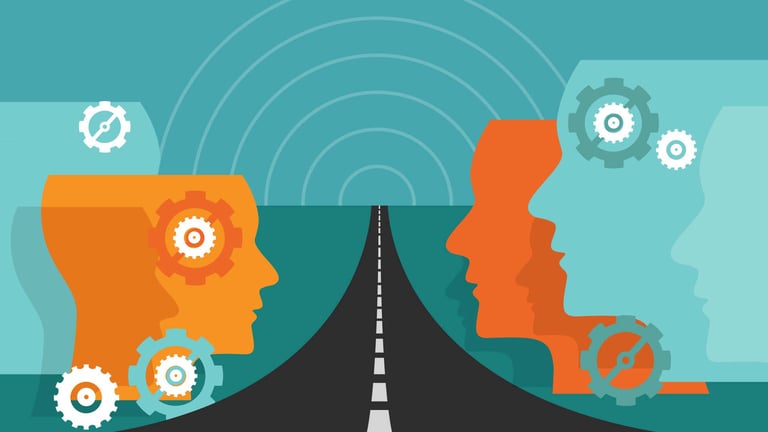Ever met someone who seemed far younger—or much older—than their chronological age? You can chalk that up to biological age. While the days, months, and years that pass are what give us our chronological age, the aging process affects us all differently. Our biological age, which is also known as our physiological age, is a reflection of that process, which is itself affected by all kinds of lifestyle factors. And while we can’t stop aging, we do know that external factors impact the process. But there’s more to the story, and both NAD and NMN play key roles. Here’s what to understand about biological age, NAD, and NMN.
Determining biological age
The idea that we actually have two ages catches some people by surprise, but it makes a lot of sense. There’s the number tracking our actual trips around the sun – chronological age. And then there’s a more tenuous measurement of aging that’s based on key biomarkers – biological age, and that’s where NMN and NAD can change everything. The process of aging with its wrinkles, graying hair, and forgetfulness is interconnected with both physical and cognitive decline. These changes are part and parcel of growing older. And while we can’t stop the days from turning into months or years, we do have some degree of influence over our biological age. Much of it is hardwired into our DNA. But socioeconomic status and lifestyle habits like nutrition, fitness, sleep, and stress have a massive impact on our individual aging process.
Some quick math is all you need to remember your chronological age. Companies with an eye to NAD and NMN are offering spit or blood testing to zero in on your biological age too. The benefit of knowing both gives a clearer picture of your overall health profile and a greater understanding of your risk of developing certain diseases or even early mortality.
Now, there’s one other component in this biological age thing that’s worth discussing.
NAD = life.
Nicotinamide adenine dinucleotide, or NAD, is a cellular component present in living things, from the simplest organisms all the way up to the most complex. It’s involved in all sorts of complicated, fundamental biological processes, and without it, life as we know it simply doesn’t exist. In other words, this little cofactor is a big deal. And since the discovery of NAD well over 100 years ago, its role in our biological age is being recognized, along with its precursor molecules, including NMN,” as the authors of NAD and the Aging Process: Role in Life, Death and Everything in Between so plainly put it.
NMN = NAD for a change in biological age
Here’s the thing. As the years pass, NAD production begins to slow, and NAD levels begin to decline. It’s a natural part of the chronological aging process, and it’s also a trigger to age-related cellular dysfunction that creates a number of problems, including cancer and metabolic disorders, and neurodegenerative disease. By the time we’re 50 years old, our NAD levels are roughly half what we had when we were 20—a decline that begins as early as our 30s.

Guess what else happens when we’re 50? If you’re back to picturing graying hair, more wrinkles, stiffer joints—you know, general signs of getting older—you’d be right. But just as science is showing us that NAD depletion is tied to aging, it’s also making it abundantly clear that boosting NAD levels could be a game-changing strategy for keeping our biological age young—even as the years keep ticking skyward. And that’s where NMN comes in.
NMN: The NAD precursor for your biological age
Efficiently increasing NAD levels and fending off those age-related diseases is possible, here and now, thanks to specific NAD precursors. NMN, or nicotinamide mononucleotide, is perhaps the most exciting. Dr. Andrew Salzman, Harvard MD, scientist, inventor, a biomedical entrepreneur with more than 30 years of experience in drug discovery and development, and the brilliant mind spearheading the Wonderfeel team, describes one of the biggest breakthroughs in longevity science as the simple recognition that via supplementing, we’re able to get NMN into the cells, where it’s used to produce NAD. That process has a ripple effect that effectively blocks the aging process, impacting everything from insulin sensitivity to cognition, memory to energy, and metabolism to libido.
It’s all quite logical and straightforward—NAD declines as we age, and that decline is associated with a number of age-related diseases and the process of aging itself. NMN can help restore NAD levels to more youthful levels, with impressive effects. And one of them is a biological age that’s notably younger than your chronological age.

The takeaway
When we’re talking about NMN, NAD, and biological age, one thing is clear – external factors matter. Excessive drinking, smoking, nutrient-void or overly-rich diets, sedentary lifestyles, and chronic stress all contribute to a biological age that can far outpace your actual years on this earth. But there’s a biological clock in play too. Despite astounding healthcare advances over the past century, the limiting factor remained—the fact that NAD levels drop as our chronological age climbs. Now, a daily supplement regimen with Wonderfeel Youngr™ makes that limiting factor, well, more of a non-factor. If the idea is to keep your biological age relatively stable as your chronological age keeps climbing, then boosting NAD levels with NMN most certainly plays a key role in that healthy lifestyle you work so hard to maintain.













